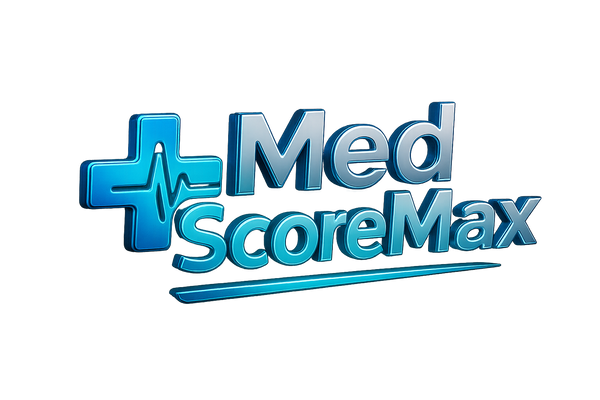
🤖 Can AI Replace Clinical Reasoning? A Deep Dive for Shelf Exams
Share
Artificial Intelligence (AI) is transforming every sector—and medical education is no exception. But with its rapid integration into study tools, apps, and diagnostic platforms, one pressing question emerges:
Can AI truly replace clinical reasoning—especially in high-stakes exams like the NBME Shelf Exams?
In this in-depth blog, we explore:
-
What clinical reasoning actually is
-
How AI mimics or supplements it
-
Where AI excels and where it falls short
-
How YOU can use AI tools for better Shelf Exam performance
-
Why combining AI with real exam recall packages gives you the ultimate edge
🧠 What is Clinical Reasoning?
Clinical reasoning is the cognitive process that doctors use to:
-
Analyze patient symptoms and signs
-
Generate and prioritize differential diagnoses
-
Interpret lab results, imaging, and patterns
-
Decide on management or treatment plans
It’s not just knowledge—it’s decision-making under pressure, grounded in patient context and pattern recognition.
In the NBME Shelf Exams, questions mimic real-life vignettes. A single stem may contain:
-
Past medical history
-
Physical exam findings
-
Diagnostic values
-
Confounders or red herrings
To succeed, you must think like a clinician, not just recall facts.
🤖 How AI is Trying to Replicate Clinical Reasoning
Modern AI tools—like ChatGPT, AMBOSS AI Assist, and UWorld SmartNotes—are being trained on millions of clinical cases, guidelines, and board-style questions.
Here's how AI mimics clinical reasoning:
-
Pattern Matching: AI can identify disease patterns based on symptoms (e.g., fever + murmur + splenomegaly = endocarditis).
-
Bayesian Thinking: Some advanced tools like Isabel Healthcare or Infermedica use statistical modeling for likelihood estimation.
-
Decision Trees: Used in algorithms that mimic physician workflows for diagnosis and triage.
Notable AI-Powered Tools:
-
ChatGPT (GPT-4) – Can explain NBME questions, generate differential diagnoses, and simulate clinical conversations.
-
AMBOSS AI Assistant – Links clinical knowledge directly to Shelf-style questions with in-line explanations.
-
UWorld SmartNotes – AI-generated summaries and personalized feedback loops based on your weak areas.
-
Infermedica / HumanDx – Offers diagnostic reasoning AI to simulate patient cases and decision paths.
📉 Where AI Falls Short in Clinical Reasoning
Despite rapid improvements, AI is not (yet) a replacement for human reasoning. Here’s why:
1. Lack of Contextual Judgement
AI doesn’t understand the patient. It processes input but lacks:
-
Nuance in psychosocial variables
-
Cultural or emotional awareness
-
Judgment in uncertain or borderline cases
2. Limited on Ethics and Empathy
Clinical decisions often involve empathy, risk-benefit balancing, and subjective patient values—areas where AI still lacks emotional intelligence.
3. Gaps in Novel Case Presentations
Shelf exams are designed to test outlier scenarios and ambiguous vignettes. AI can struggle when faced with unusual presentations or contradictory findings.
4. Over-Reliance Risk
Students who lean solely on AI for answers may bypass the deep thinking required to internalize clinical patterns—leading to poor performance under pressure.
🧪 Can AI Still Help You Prepare for Shelf Exams?
Absolutely. But you need to use it as a tool—not a crutch.
🔥 Best Practices to Use AI for Shelf Success:
✅ 1. Use AI to Break Down NBME Questions
Feed the full vignette to ChatGPT or AMBOSS AI, and ask:
“Explain this question. What’s the differential? Why is the correct answer best?”
This builds your pattern recognition and understanding of distractors.
✅ 2. Ask AI to Quiz You
Prompt your AI tool with:
“Give me a 3-question quiz on nephrotic syndrome with explanations.”
This boosts active recall and simulates Shelf testing.
✅ 3. Generate Differential Tables
AI can summarize:
-
Causes of chest pain
-
Types of anemia
-
Workup of fever of unknown origin
This saves time and creates organized, high-yield notes.
✅ 4. Simulate Mini-OSCEs
Roleplay with AI:
“Pretend you're a patient with fatigue and weight loss. Let me ask questions and take a history.”
This builds diagnostic thinking and prepares you for clinical rounds, too.
💡 The Winning Combo: AI + Real Exam Recall = Shelf Exam Mastery
AI will help—but it won't hand you prometric-replicated questions on a silver platter.
That’s why thousands of top med students use MedScoreMax’s Real Shelf Exam Recall Packages alongside AI tools.
🔗 Why It Works:
-
90% repeat rate on actual prometric Shelf exams
-
Authentic vignettes, screenshots, and tested concepts
-
Aligned with AI-enhanced study tools like ChatGPT, AMBOSS, and Anki
-
Saves HOURS of guesswork—target what’s tested
🛒 Browse Shelf Recall Collections Here →
👉 Real Shelf Clinical Exam Recalls – MedScoreMax
🏁 Final Verdict: Can AI Replace Clinical Reasoning?
🧠 No—but it can massively enhance it.
Think of AI as a powerful assistant. It’s fast, accurate (most of the time), and tireless. But YOU are still the clinician. You make the final call. That skill—clinical reasoning—is what the Shelf exams are really testing.
So, here’s your winning strategy for 2025:
Use AI to train. Use real exam recalls to target. Use your brain to think like a doctor.
📈 Optimize Your Study with These Resources:
💬 Got thoughts on AI in medical exams?
Drop a comment or share this with your study group. Let’s discuss how we can use tech without losing touch with true clinical thinking.
